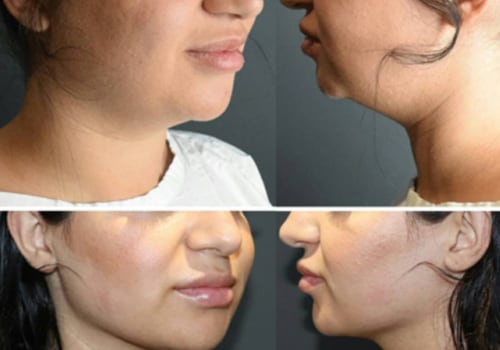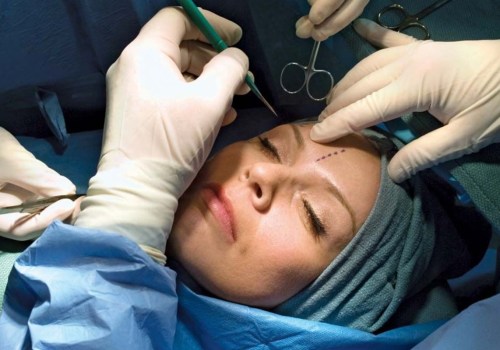Given the IRS definition, most cosmetic surgeries do not qualify as an HSA-eligible expense, including “any procedure that is aimed at improving the patient's appearance and does not significantly promote proper functioning of the body or prevent or treat a disease or illness.”. Generally, you can't include the amount you pay for cosmetic surgery in your medical expenses. This includes any procedure that is aimed at improving the patient's appearance and that does not significantly promote proper functioning of the body or prevent or treat a disease or disease. You generally cannot include in your medical expenses the amount you pay for procedures such as facelifts, hair transplants, hair removal (electrolysis), and liposuction.
Breast cancer survivors often undergo breast reconstruction or breast implants afterwards. Many insurance providers consider it necessary, meaning it is tax-deductible. Breast augmentation for uneven breasts can also be considered a medical expense. This applies to those who undergo blepharoplasty to correct vision problems caused by drooping eyelids and nose surgery for a deviated septum.
Transgender surgeries and hormone therapy can also be a tax deduction. It may be tempting to claim these expenses in your taxes, but be careful. The IRS is quite forceful in its stance on this issue. According to the IRS, Publication 502, Medical and Dental Expenses, it generally cannot include medical expenses for cosmetic plastic surgery procedures, such as facelifts, hair transplants, hair removal (electrolysis), and liposuction.
IRS rules on cosmetic surgery are clear. Medical expenses you incur for unnecessary cosmetic surgery are not deductible. The IRS allows you to pay off medical expenses related to procedures that cure a condition or illness, treat or restore your body, or improve your overall health. For example, the IRS would allow you to deduct the cost of breast reconstruction surgery after a mastectomy because the procedure restores the body to its pre-cancer state.
You probably already know that charitable deductions are tax-deductible. But what about the cost of caring for your pet? Or your son's clarinet classes? In some cases, the IRS has allowed taxpayers to deduct unusual expenses on their tax returns. For example, these costs may be a qualified medical expense or are an ordinary and necessary business expense of an entrepreneur. That means it might be more difficult for filers to claim out of the ordinary itemized deductions on their returns.
Generally, you can't collect a tax break for cosmetic surgery. The Tax Court allowed an exception in the case of Cynthia S. Hess, then exotic dancer who was self-employed in Fort Wayne, Indiana. She tried to get a depreciation tax relief on the implants, declaring them a deductible business expense.
The IRS initially blocked the deduction, stating that the implants were a personal cost. However, the Tax Court found that they were a business expense and ruled in favor of Hess. In 1990, the Tax Court ruled in favor of John and Joana French, who tried to cancel their 1984 taxes on a private plane they used to search their rental condo. The French were headquartered in San Jose, California, and their condo was in Mammoth Lakes, California.
The two had the option of driving more than six hours or taking the only commercial flight available to take care of their property. The IRS had argued that the family enjoyed flying to Mammoth Lakes and that they would ski and swim during their visits, so the trips were actually vacations. On the other side of the spectrum, if you have a service animal or guide dog, you can deduct the cost of buying, training and maintaining it. This would count as a medical expense.
Lastly, if your pet becomes an internet sensation, you may be able to deduct related costs as business expenses, Greene-Lewis said. The IRS has a nine-part test to help you make the determination, addressing the time and effort spent making your business profitable and whether you maintain accurate books and records. The same applies to weight-loss aids that your doctor prescribes to treat a particular disease. May be deductible, but only to the extent that it is not covered by insurance.
In 1962, the IRS added a provision allowing a tax deduction for clarinet classes based on an orthodontist's recommendation that the woodwind instrument could help correct a child's overbite. Do you have any confidential news? We want to hear from you. Get this delivered to your inbox and learn more about our products and services. Technically, cosmetic surgery falls under the category of personal appearance expenses, although you live in a somewhat gray area.
This is because permanent modification of your body is difficult to classify as just for work, unlike a special costume, you can't “take it off” when you turn off the starting clock. As W2 and 1099 arrive, you may be looking for ways to maximize your refund (or minimize what you owe) and, if looking good is part of your job, you may be wondering if you can cancel your cosmetic surgery. In this case, these would be considered medical expenses and can be deducted only if they were incurred during the tax year for which you file and can only be deducted once on your tax return. Transportation costs for a nurse or other person who can give injections, medication or other treatment required by a patient traveling for medical care and unable to travel alone; and.
If you are considering having a tummy tuck to resolve symptoms related to excess skin, talk to your surgeon and a tax advisor to see if your surgery could be considered necessary rather than cosmetic. Do not include in your medical and dental expenses any insurance premiums paid by an employer-sponsored health insurance plan, unless the premiums are included on your Form W-2, Wage and Tax Statement. The Tax Court has set a precedent for allowing cosmetic surgery deductions as business expenses when cosmetic surgery is necessary for business purposes. You can include in medical expenses fees you pay on the recommendation of a doctor for a teacher who is specially trained and qualified to work with children who have learning disabilities caused by mental or physical impairments, including disorders of the nervous system.
You can include in medical expenses amounts paid to a plan that maintains medical information in a computer database and that retrieves and provides the information to a treating doctor if requested. But don't even dream of having your liposuction or tummy tuck deducted unless they were done for medical reasons determined by your doctor. Essentially, she must show that her cosmetic surgery is necessary to do her job and that the resulting result not only does not benefit her daily life, but is also inappropriate for her. You can include in your medical expenses the amounts you pay for legal operations that are not for cosmetic surgery.
You can include in your medical expenses the amount you pay for cosmetic surgery if it is necessary to improve a deformity that arises from, or is directly related to, a congenital anomaly, a personal injury resulting from an accident or trauma, or a disfiguring illness. . .







